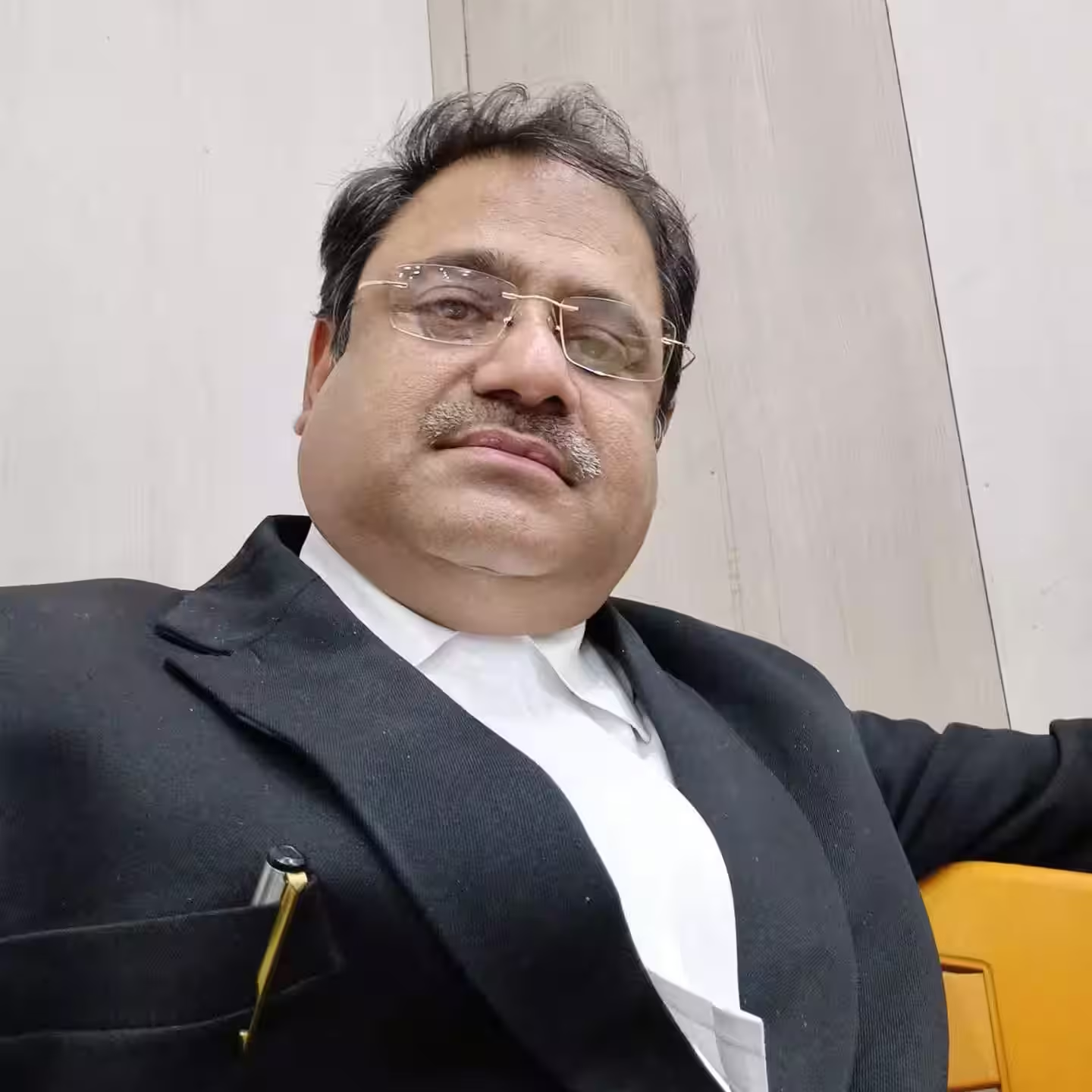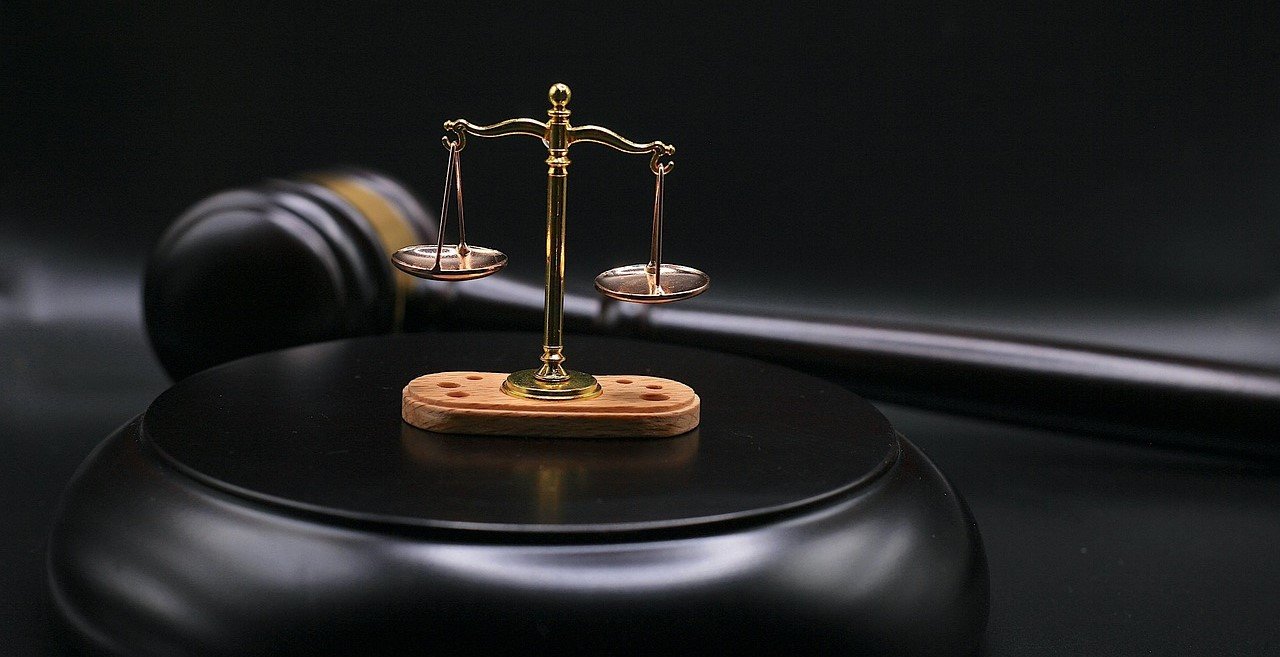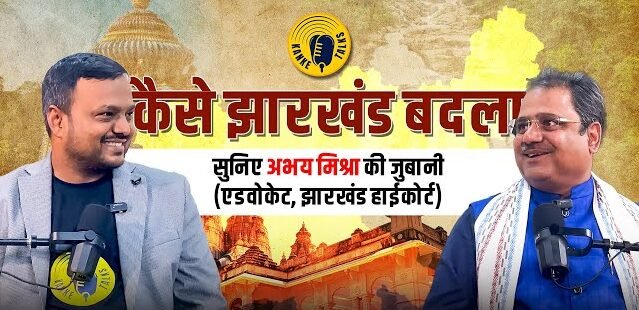In a world where silence often seems safer than truth, Abhay Mishra speaks—loudly, clearly, and without apology.
He is not just an advocate practicing in the High Court of Jharkhand. He is a voice that refuses to be muted, a crusader for the voiceless, and a citizen who has made truth his only allegiance.
Whether it’s courtrooms, street protests, or social media platforms, Abhay Mishra stands out—not because he’s loud, but because he’s unafraid.

“Why should I fear?” – The Courage Behind the Man
In the interview, when asked how he dares to speak so frankly and fearlessly, Abhay smiles. The answer is deceptively simple.
“Fear is only for those who fear losing something. I don’t have anything to lose.”
Raised with deep-rooted values and fearlessness, he believes that honesty is the strongest armour. “If your conscience is clean, your voice becomes your shield,” he says.
This attitude wasn’t developed in a day. It was shaped through displacement, discrimination, and decades of first-hand exposure to injustice—from tea gardens in Naxalbari to the closed chambers of law.
A Childhood on the Move: Life as an IB Officer’s Son
Abhay’s journey began in a household where service to the nation was not just a slogan but a profession. His father worked in the Intelligence Bureau (IB), which meant constant transfers and upheaval.
He never stayed in one place for long—Kohima, Ranchi, Dehradun, Sikkim… the map of his childhood is dotted with change. He studied at Kendriya Vidyalayas, often not even knowing his teachers’ names because he’d move before the semester ended.
At age 6, he was already noticing the social injustices around him in Naxalbari, a region where class war and land rights were igniting revolutions. Watching landlords flee, poor labourers plead forjustice, and silence prevail over equity—it left a mark.
“Even as a child, I knew that something was wrong. The law should protect the weak. But often, it didn’t.”
A Rebel in Dehradun
In his teenage years, Abhay was sent to Scholars Home in Dehradun to “straighten out.” But his spirit wasn’t made for straight lines. Instead of fitting in, he launched the “Doon Bachao Andolan”, planting trees and protesting reckless urbanization.
His father, realising he had birthed a rebel, immediately had him transferred again—this time to Sikkim. There, in a school where he was the only Bihari among Nepali students, Abhay faced severe regional and linguistic discrimination. Even being called “Indian” was an insult.
But it only made him tougher. “My Bhojpuri roots made me proud,” he says. “Being called Indian in Sikkim made me realise how complex our identity is within our own country.”
A Disobedient Student with a Purpose
Back in Ranchi, he briefly joined St. Xavier’s College, but left after seven days. He then landed at Yogada College, where, even though he struggled with Hindi due to years of English-medium education, he found his rhythm in political science.
After graduation, his father urged him to pursue an MBA. Abhay agreed but soon realised that the corporate world wasn’t for him.
He briefly joined Goodfrey Phillips India Ltd, a tobacco firm, as a team leader. But within a year, he quit.
“I was made for courts, not cubicles.”
From Corporate Cubicles to the Courtroom
In the late ’90s, Abhay shifted to law—and never looked back. Today, he’s a seasoned High Court advocate known for taking up tough cases, speaking truth to power, and defending the common man with the same rigour as the elite.
He’s also a social activist, a historian at heart, and a vocal critic of flawed systems, especially those that seek to erase cultural, legal, or indigenous identity.
The Law is Not a Weapon, It’s a Language
Abhay’s legal philosophy is unique. For him, law is not a maze of rules—it’s a mirror of society’s values, and one that must evolve.
He sees legal knowledge as a power the masses must have. “Our country is confused not because of a lack of rules, but because of a lack of awareness,” he says.
To understand India’s present, Abhay insists, one must study its legal history—from Manusmriti to IPC, from Macaulay’s 1835 blueprint to India’s new penal codes.
“Law isn’t just about courts. It’s about character.”
Historical Memory: The Forgotten Truths
Abhay is fiercely vocal about the erasure of indigenous heroes and misrepresentation of Indian history in education.
He laments how Bhagwan Birsa Munda, one of the fiercest tribal revolutionaries, is often missing from CBSE textbooks.
“If a child can’t read about Birsa Munda in school, what kind of national education is that?”
Abhay’s criticism isn’t just emotional—it’s factual. He references gazetteers, forgotten tribal revolts, and massacres like Dom Buru Buru, which killed more than 10,000 but never made it to national headlines.
While Jallianwala Bagh is widely known, why is Dombari Buru—where entire tribal families were wiped out—absent from history books?
Fighting with Facts, Not Fury
Abhay has studied Manusmriti, Yajurveda, and even the Vedas, not to prove superiority, but to counter ignorance. He calls out the habit of criticizing texts without reading them.
“If you haven’t read Manusmriti, how can you burn it?”
He explains that the Manusmriti doesn’t glorify Brahmins—it holds them more accountable. “It says if a Brahmin does wrong, punish him four times more than a Shudra. But don’t kill him. Why? Because he has memorized knowledge, and killing him means killing that knowledge.”
To him, education without understanding is like speech without soul.

A Historian in the Garb of a Lawyer
It’s hard to pin Abhay down. One moment he’s quoting the Constitution, the next he’s narrating the sacrifice of Guru Gobind Singh’s sons, buried alive at the age of five and nine.
He recalls the battle of Chamkaur, where a 14-year-old Ajit Singh led Sikh warriors into battle. “These are stories that should stir your soul,” he says. “But today, our children don’t even know them.”
He mocks the ignorance of “Veer Bal Diwas” celebrations where students clap without knowing what they are commemorating.
The Crisis of National Memory
Why don’t we learn about our tribal martyrs, unsung warriors, and grassroots revolutionaries?
Because, Abhay says, the system doesn’t want you to remember.
“The government wants mental slaves, not awakened citizens. If you start asking questions, who will vote blindly?”
He critiques schemes like “Maiya Samman Yojana” or “Didi Gogo Didi” not for their intent, but for their gimmickry. “Giving ₹210 0 as ‘respect money’ is not respect,” he says. “It’s a distraction.”
Not Just Law, But Literacy of Thought
Abhay isn’t here just to win cases—he’s here to change conversations.
He wants youth to:
- Read Manusmriti and Yajurveda
- Know who Birsa Munda really was.
- Learn why Dronacharya took Eklavya’s thumb—not as caste injustice, but geopolitical necessity.
- Realize why school education was shaped by Lord Macaulay, and how gurukuls were far more inclusive than we think.
“Don’t repeat what you’ve heard. Read it. Question it. Understand it.”
Final Words: The Advocate Who Educates
In every line Abhay Mishra speaks, there is a deep yearning for India to wake up—not just economically or technologically, but intellectually and historically.
He ends the conversation not with complaint, but with a call to action:
“You’re not just a voter. You’re a voice. Use it. Educate yourself, and you’ll never be manipulated again.”
Abhay Mishra doesn’t just fight in courtrooms. He fights in minds. With every word, he hopes to light a fire that burns ignorance and brightens truth.
He is not the hero of a Netflix courtroom drama.
He is the real deal.

No responses yet